Library
Discover the latest innovations, learn about promising practices, and find out what’s coming next with best-in-class resources from trusted sources.
Is there something missing from our library?

Search and filters
Search for the topic or resource you're looking for, or use the filters to narrow down results below.
Results
-
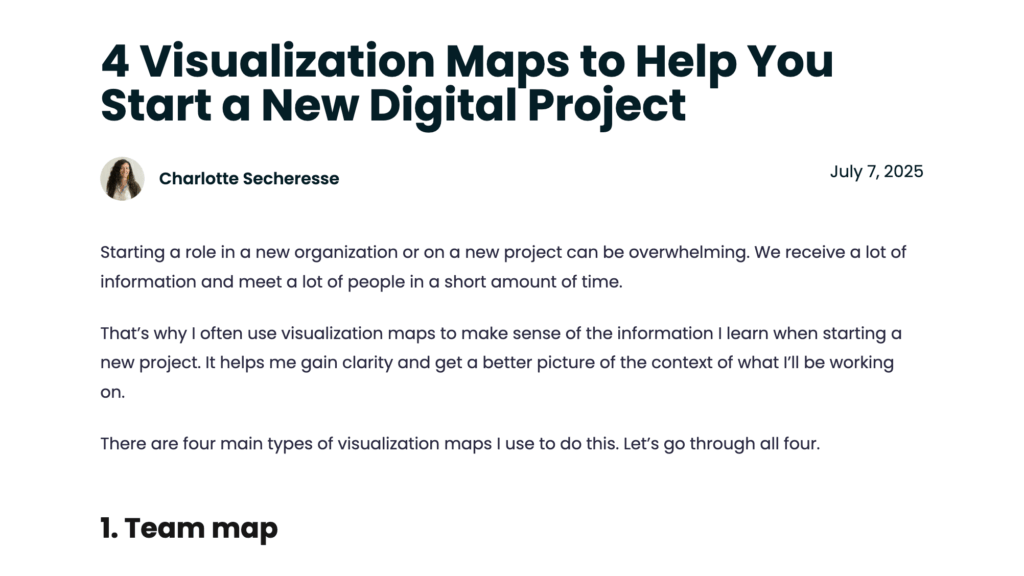
4 Visualization Maps to Help Start a Digital Project
A blog post offering four distinct types of visualization maps that help digital project teams quickly build shared understanding and alignment when starting new work.
-
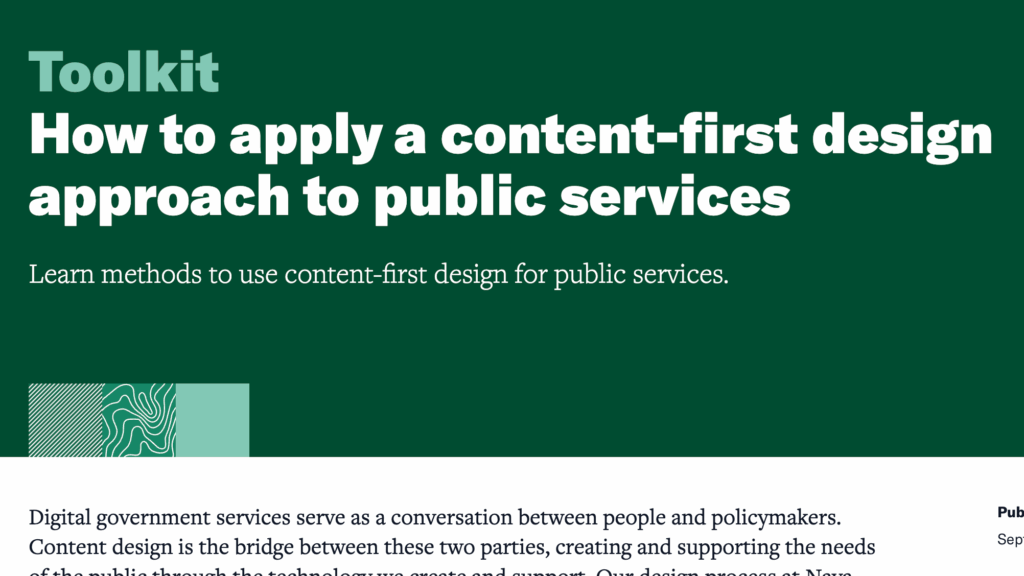
How to apply a content-first design approach to public services
A toolkit that explains how to apply a content-first design approach to public services, helping teams design content strategy and interfaces based on user needs.
-

Collaborative Form Design in New York State: A FormFest 2025 Profile
A FormFest profile highlighting how New York State’s design and technology teams are reimagining form creation through collaborative, human-centered design methods that simplify processes and expand participation.
-

Collaborative Form Design in New York State: A FormFest 2025 Profile
A FormFest profile highlighting how New York State’s design and technology teams are reimagining form creation through collaborative, human-centered design methods that simplify processes and expand participation.
-
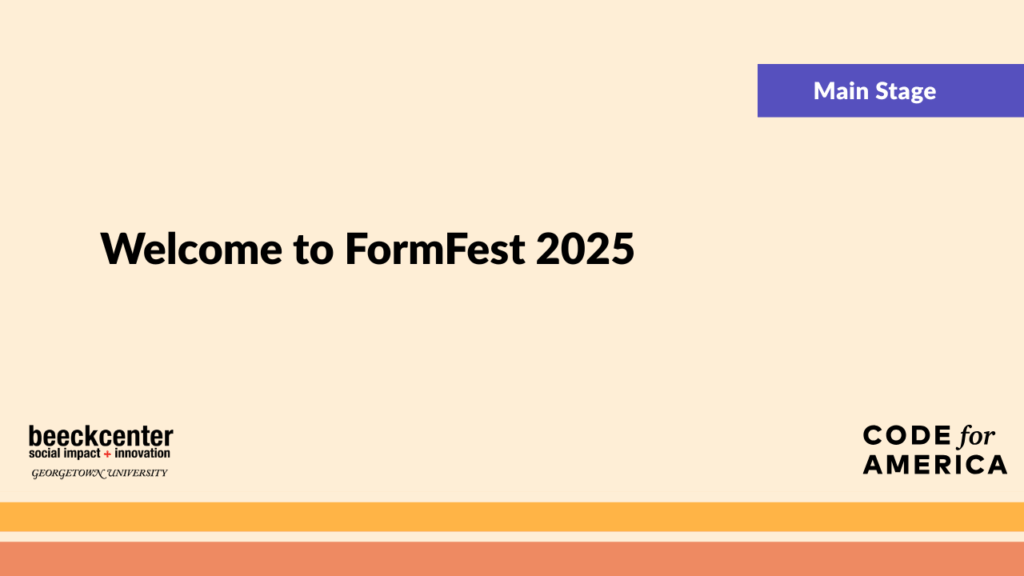
Welcome to FormFest 2025
The Beeck Center’s Lynn Overmann and Code for America’s Amanda Renteria kicked off FormFest 2025 with first ever Formies.
-
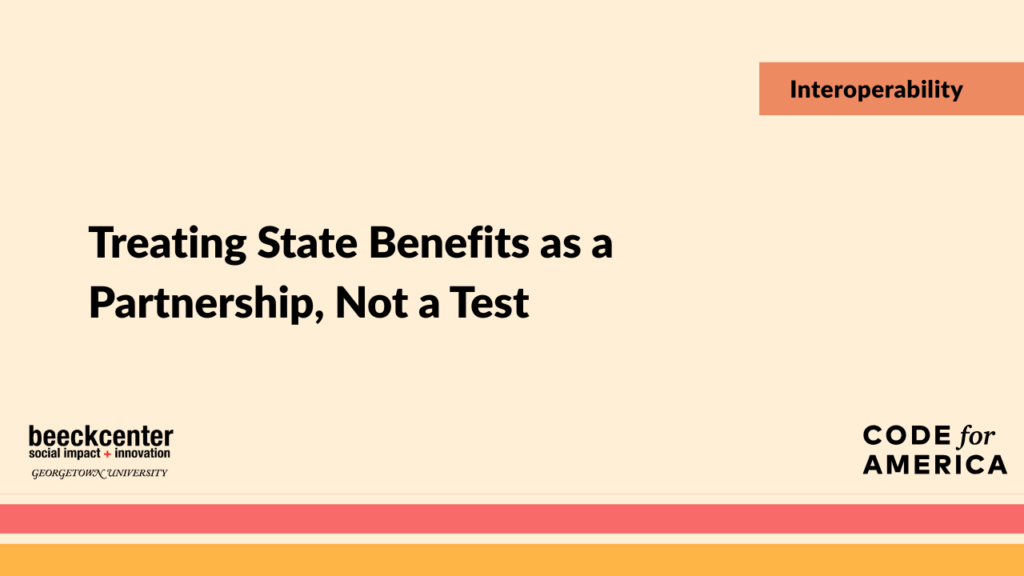
Treating State Benefits as a Partnership, Not a Test
Discover how Massachusetts transformed child care benefits with a family portal using Requests for Information to simplify the process.
-
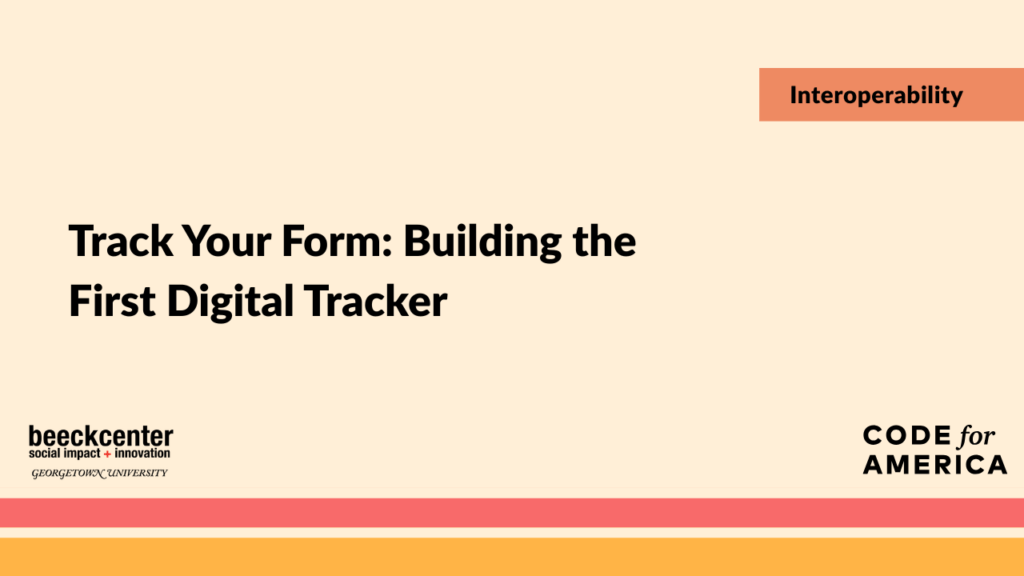
Track Your Form, Building the First Digital Tracker
Discover how Michigan created a real-time benefits application tracker that gives residents with clarity throughout the process.
-
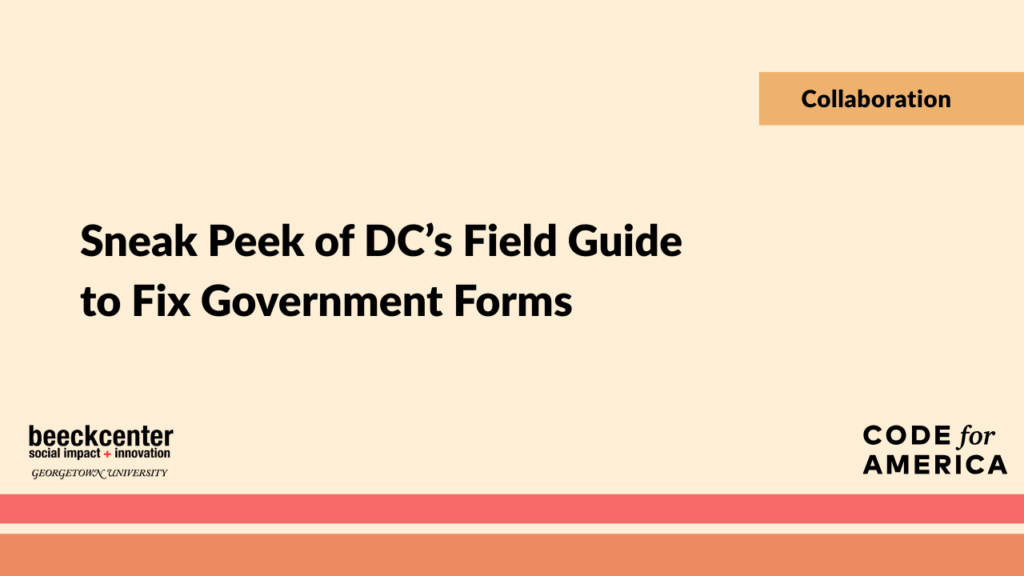
Sneak Peek of DC’s Field Guide to Fix Government Forms
Get an exclusive first look at The Lab @ DC’s form design playbook with tips, lessons, and engagement strategies from redesigning 60+ forms.
-
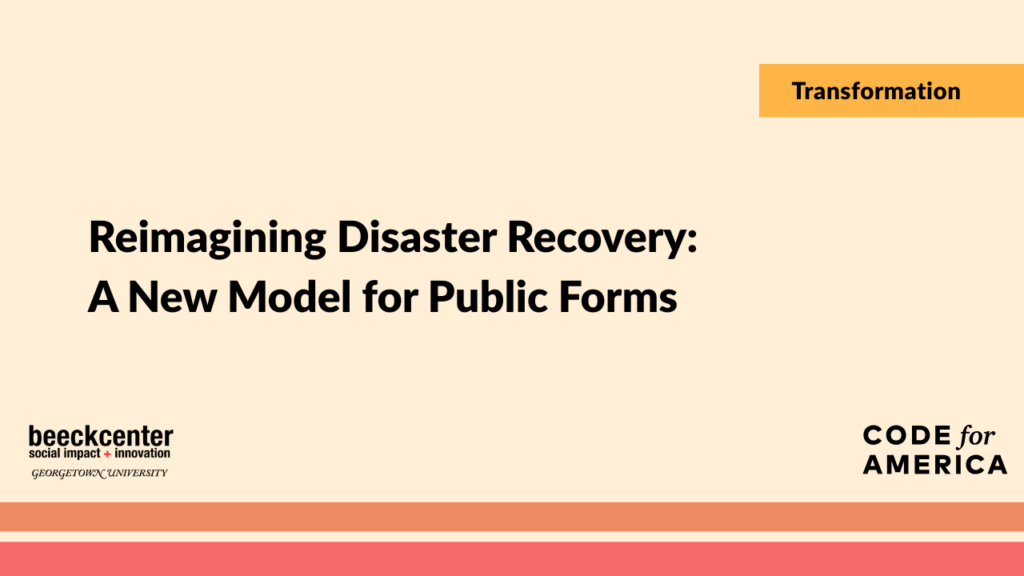
Reimagining Disaster Recovery: A New Model for Public Forms
See how California reimagined disaster recovery by auditing 22 forms across eight agencies to design a unified application experience.
-
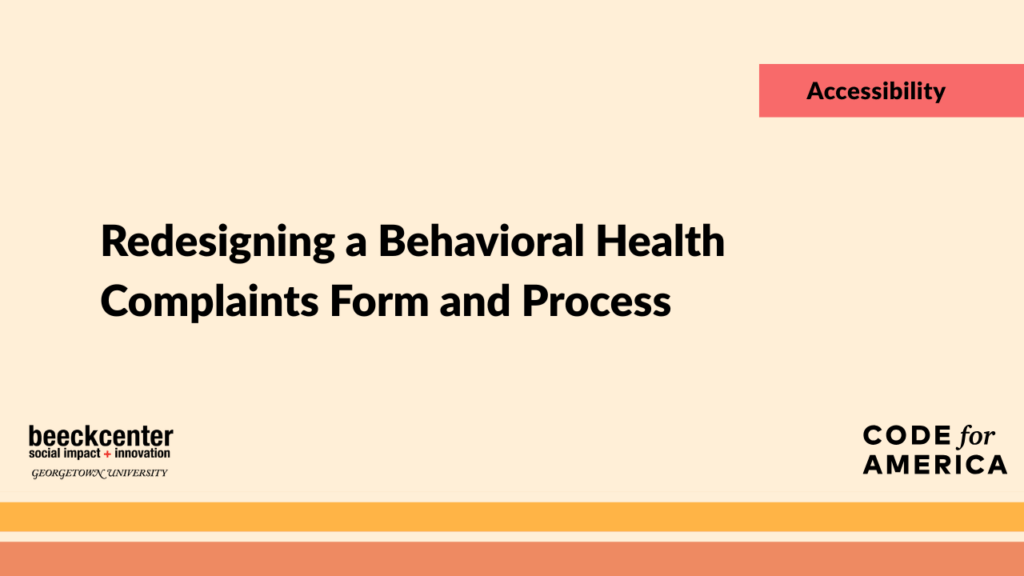
Redesigning a Behavioral Health Complaints Form and Process
See how Colorado transformed a behavioral health complaint form into a trauma-informed, accessible tool that builds trust with constituents.
-
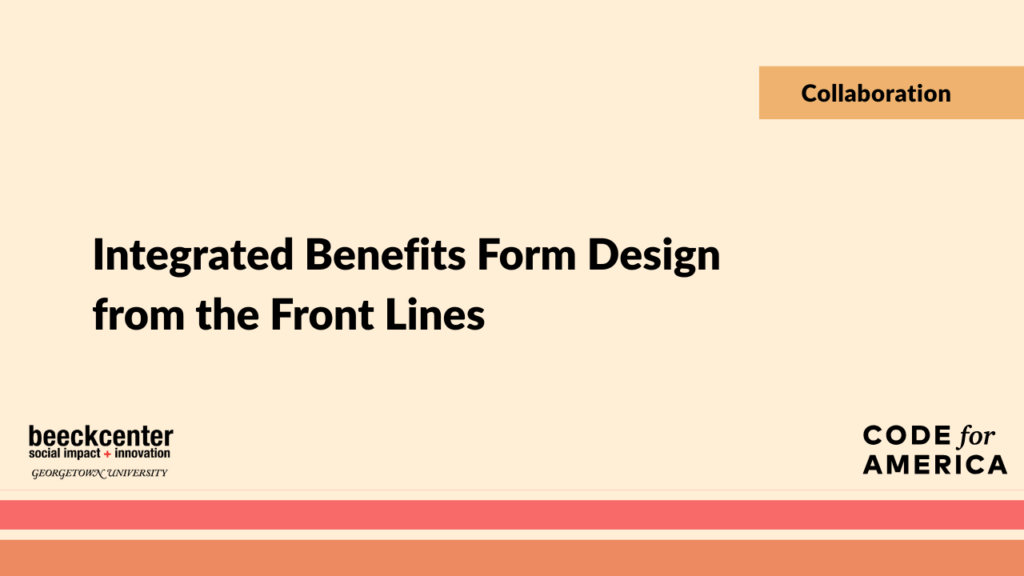
Integrated Benefits Form Design from the Front Lines
See how Arizona centered eligibility workers in the design of an integrated benefits application, making it smoother for clients and staff.
-
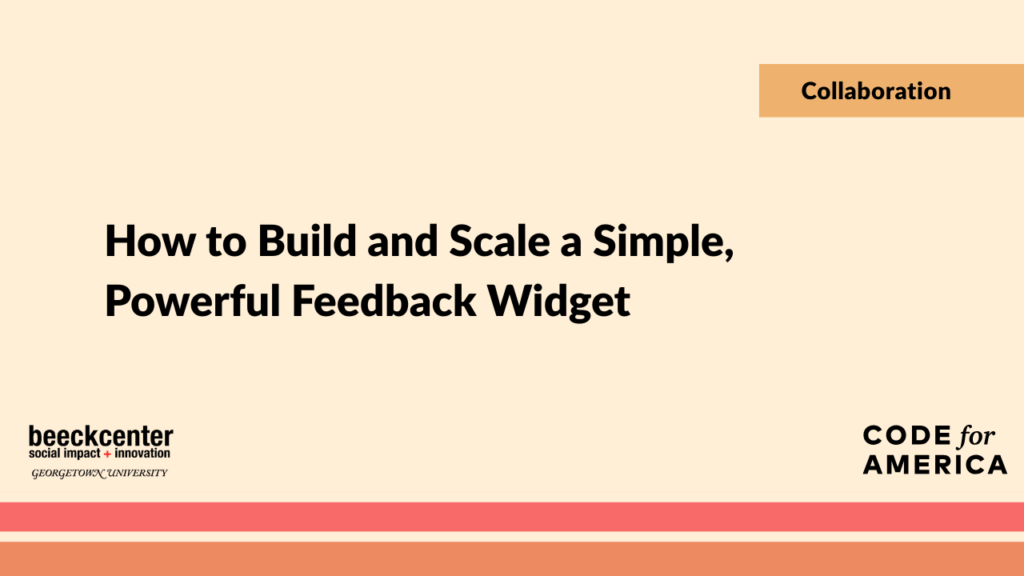
How to Build and Scale a Simple, Powerful Feedback Widget
Explore how statewide feedback platforms can turn real-time input into tools for building a more responsive, people-centered government.